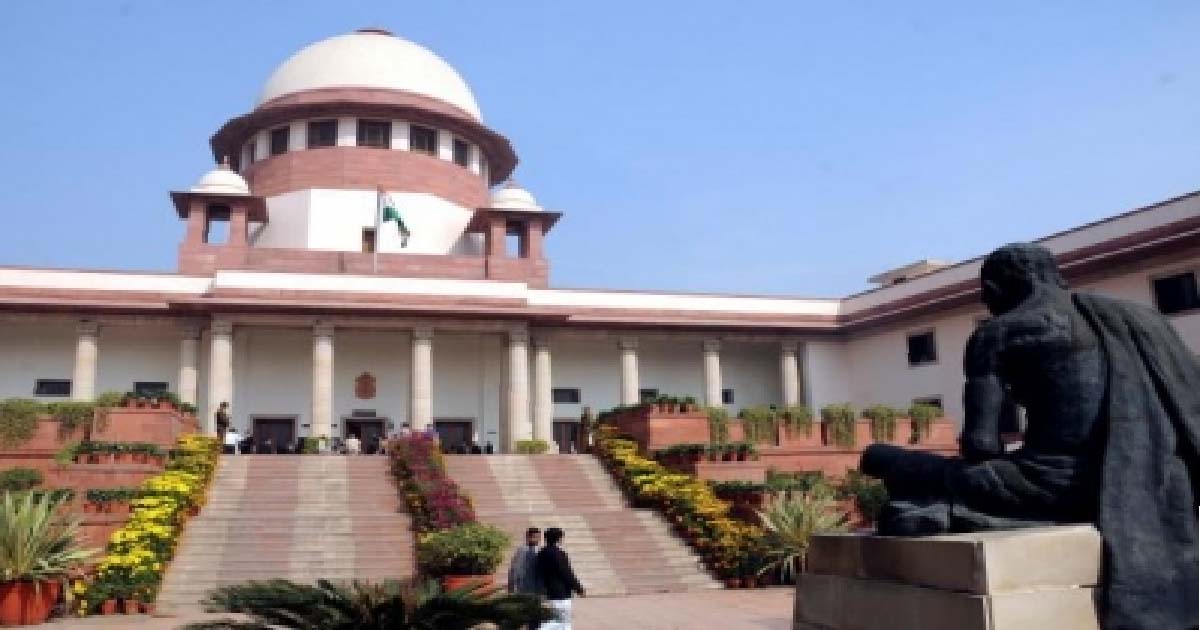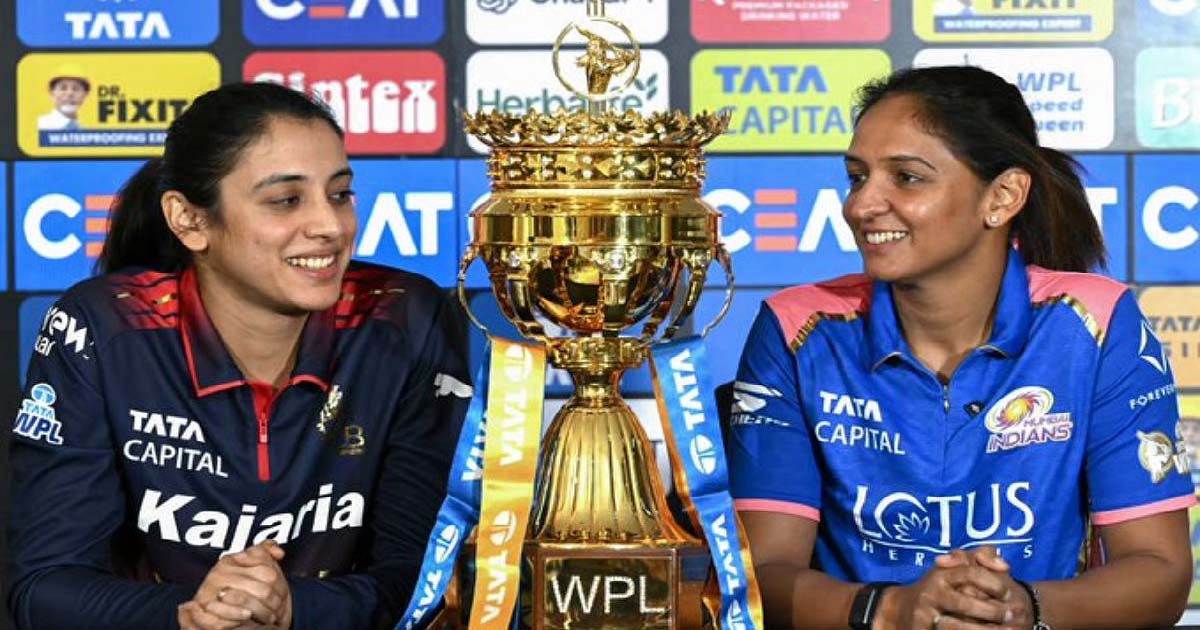National News
‘Concerned over violence’: SC posts further hearing on Waqf (Amendment) Act challenge pleas for tomorrow (Lead)

New Delhi, April 16: The Supreme Court on Wednesday expressed its concern over violence taking place amid protests against the Waqf (Amendment) Act, 2025.
“One thing that is very disturbing is the violence which is taking place. Once the matter is before court, it should not happen,” a bench headed by CJI Sanjiv Khanna remarked.
The bench, also comprising Justices Sanjay Kumar and K.V. Viswanathan, fixed the pleas challenging the constitutional validity of the amendments introduced in the Waqf Act, 1995, for further hearing on Thursday at 2 p.m., including the arguments of the Union government on passing of an interim order.
During the course of the hearing, the apex court indicated that it would pass an interim order providing that the properties already declared as waqf by court order or otherwise will not be denotified by virtue of the recent amendment.
It proposed that provision of the Waqf (Amendment) Act, 2025, providing that a waqf property would not be treated as a waqf while the Collector is conducting an inquiry on the aspect if the property is a government land, should not be given effect to.
Further, the CJI-led Bench said that it intends to pass an interim order providing that all members of the waqf boards and Central Waqf Council, except the ex-officio members, should be Muslims.
Solicitor General Tushar Mehta opposed the passing of an interim order and urged the CJI Khanna-led Bench to give the Union government a hearing before any order is passed. He added that a reply would be filed within two weeks if a notice is issued to the Union government, and the matter may be taken for hearing on a day-to-day basis.
At the very outset of the hearing, the top court said: “Two aspects we would like both sides to address. First, whether we should entertain writ petitions or relegate it to the High Court? Second, what do you (petitioners) want to argue?”
Multiple petitions have been filed before the Supreme Court challenging the constitutional validity of the recent amendments introduced in the Waqf Act, 1995.
After the legislation was passed by Parliament in the first week of April, the Congress announced it will challenge the Waqf (Amendment) Bill (now an Act after the Presidential assent) before the Supreme Court, claiming that it was an attack on the basic structure of the Constitution and was aimed at “polarising” and “dividing” the country on the basis of religion. On the other hand, the government has said that crores of poor Muslims will benefit from this legislation, and in no way does it harm any single Muslim.
In his petition filed before the apex court, Congress MP and party whip in Lok Sabha Mohammad Jawed contended that the amendments violated Articles 14 (right to equality), 25 (freedom to practice and propagate religion), 26 (freedom of religious denominations to manage their religious affairs), 29 (minority rights), and 300A (right to property) of the Constitution.
Another plea filed by All India Majlis-e-Ittehadul Muslimeen (AIMIM) chief Asaduddin Owaisi said the impugned amendments are “ex facie violative of Articles 14, 15, 21, 25, 26, 29, 30, 300A of the Constitution of India and manifestly arbitrary”.
Several others, including the Association for Protection of Civil Rights, AAP leader Amanatullah Khan, Maulana Arshad Madani of Jamiat Ulema-i-Hind, the All India Muslim Personal Law Board (AIMPLB), the Social Democratic Party of India (SDPI), the Indian Union Muslim League, Taiyyab Khan Salmani, and Anjum Kadari, have filed petitions challenging the constitutional validity of the provision.
In response to the petitions seeking a stay on the implementation of the Waqf (Amendment) Act, 2025, the Union government has filed a caveat, or notice submitted to a court by a party to a litigation who wishes to be heard before any order is likely to be issued on the opponent’s plea, in the Supreme Court.
Also, several BJP-ruled states, including Haryana, Maharashtra, Madhya Pradesh, Rajasthan, Chhattisgarh, Assam, and Uttarakhand, have approached the Supreme Court seeking to defend the Waqf (Amendment) Act, 2025.
The concept of ‘Waqf’, rooted in Islamic laws and traditions, refers to an endowment made by a Muslim for charitable or religious purposes, such as mosques, schools, hospitals, or other public institutions.
National News
Navi Mumbai Police Impose Traffic Restrictions Near D Y Patil Stadium During WPL 2026

Navi Mumbai: Navi Mumbai police will impose traffic restrictions on the service road near Dr. D. Y. Patil Stadium in Nerul from January 9 to January 17, 2026, to ensure security and smooth movement during the BCCI Women’s Premier League (WPL) T20 cricket matches.
According to the traffic control notification issued by the Turbhe Traffic Division, all types of vehicles will be barred from plying and parking on the service road between Bhimashankar Society and the L.P. Rickshaw Stand from 7 am to 11 pm on match days, as the route has been earmarked for the movement of players and dignitaries.
Deputy Commissioner of Police (Traffic) Tirupati Kakade said the restrictions are being enforced under provisions of the Motor Vehicles Act to prevent congestion and maintain law and order in the stadium vicinity during the matches.
Commuters have been advised to use the Sion–Panvel Highway, specifically the Uran Phata to L.P. Bridge stretch, as an alternative route to reach their destinations.
The restrictions will not apply to vehicles carrying essential commodities, police vehicles, fire brigade units, ambulances, government vehicles, other emergency services, and vehicles holding official passes issued by the WPL/IPL management.
Mumbai Press Exclusive News
Providing basic amenities to Mumbai is our priority, Samajwadi Party’s election manifesto released, Abu Asim Azmi claims to solve urban problems

Mumbai: The Samajwadi Party released its election manifesto for the Mumbai Municipal Corporation (BMC) elections at a press conference today. The party’s Maharashtra president Abu Asim Azmi presented this manifesto keeping in mind the basic problems of the people of Mumbai. Abu Asim Azmi has also promised free water supply along with basic amenities in the election manifesto. It has been promised to provide 700 liters of clean and free drinking water to every family in Mumbai daily. To raise the standard of education, it has been decided to improve the quality of municipal schools and provide scholarships and free facilities to needy students for higher education. It has also been declared necessary to arrange modern medical facilities, neighborhood clinics and free medicines in every ward of Mumbai in the medical department and health department. In addition, efforts have been made for equal employment opportunities. Creating new employment opportunities for the youth and making special projects to eliminate unemployment are also part of the election manifesto. Providing better facilities for the residents of slums, pucca houses and pothole-free roads in the city, bringing transparency in the functioning of BMC and eliminating corruption are also the main components of the election manifesto. Addressing the press conference, Abu Asim Azmi said that the Samajwadi Party is committed to the development of Mumbai and to providing its people with their fundamental rights. Our aim is not just to make promises but to make Mumbai a better and prosperous city.
National News
BMC Elections 2026: Mumbai Candidates Declare Massive Surge In Assets, Multi-Crore Wealth Revealed In Affidavits

Mumbai, Jan 08: Details of assets, profession and criminal records of selected candidates contesting the upcoming civic elections in Mumbai, as declared in their affidavits, are as follows:
Shaila Dilip Lande – Shiv Sena (Shinde), Ward 163 (Saki Naka)
Profession: Business
Total movable and immovable assets as of 2025: ₹8,18,76,134
Total movable and immovable assets as of 2017: ₹14,27,651
Criminal cases: 0
Found guilty: 0
Kamalakar Naik – Independent, Ward 169 (Kurla Nehru Nagar)
Profession: Business
Total movable and immovable assets as of 2025: ₹11,83,36,519
Total movable and immovable assets as of 2017: ₹1,92,76,226
Criminal cases: 2
Found guilty: 0
Dhanajay Pisal – Nationalist Congress Party (Ajit Pawar), Ward 111 (Kanjur Village)
Profession: Service
Total movable and immovable assets as of 2025: ₹21,82,57,202
Total movable and immovable assets as of 2019: ₹8,55,21,925
Criminal cases: 0
Found guilty: 0
Sonam Manoj Jamsutkar – Shiv Sena (UBT), Ward 210 (Mumbai Central)
Profession: Business
Total movable and immovable assets as of 2025: ₹14,38,84,259
Total movable and immovable assets as of 2017: ₹7,08,67,928
Criminal cases: 0
Found guilty: 0
Geeta Gawli – Akhil Bhartiya Sena, Ward 212 (Mahalaxmi–Umar Park)
Profession: Business
Total movable and immovable assets as of 2025: ₹7,26,92,393
Total movable and immovable assets as of 2017: ₹3,45,32,902
Criminal cases: 0
Found guilty: 0
Sana Haji Halim Khan – Shiv Sena (UBT), Ward 96 (Bandra East)
Profession: Not mentioned
Total movable and immovable assets as of 2025: ₹9,46,03,435
Total movable and immovable assets as of 2017: Not contested
Criminal cases: 0
Found guilty: 0
Nehal Shah – Independent, Ward 177 (Matunga)
Profession: Business
Total movable and immovable assets as of 2025: ₹7,04,11,095
Total movable and immovable assets as of 2017: ₹1,69,77,255
Criminal cases: 0
Found guilty: 0
Rajul Sameer Desai – BJP, Ward 56 (Goregaon)
Profession: Business
Total movable and immovable assets as of 2025: ₹24,28,81,925
Total movable and immovable assets as of 2017: ₹1,79,69,000
Criminal cases: 0
Found guilty: 0
Prabhakar Shinde – BJP, Ward 106 (Mulund)
Profession: Business
Total movable and immovable assets as of 2025: ₹17,63,01,181
Total movable and immovable assets as of 2017: ₹57,46,971
Criminal cases: 0
Found guilty: 0
Neil Somaiya – BJP, Ward 107 (Mulund)
Profession: Business
Total movable and immovable assets as of 2025: ₹9,89,21,872
Total movable and immovable assets as of 2017: ₹1,99,37,809
Criminal cases: 0
Found guilty: 0
-

 Crime3 years ago
Crime3 years agoClass 10 student jumps to death in Jaipur
-

 Maharashtra1 year ago
Maharashtra1 year agoMumbai Local Train Update: Central Railway’s New Timetable Comes Into Effect; Check Full List Of Revised Timings & Stations
-

 Maharashtra1 year ago
Maharashtra1 year agoMumbai To Go Toll-Free Tonight! Maharashtra Govt Announces Complete Toll Waiver For Light Motor Vehicles At All 5 Entry Points Of City
-

 Maharashtra1 year ago
Maharashtra1 year agoFalse photo of Imtiaz Jaleel’s rally, exposing the fooling conspiracy
-

 National News1 year ago
National News1 year agoMinistry of Railways rolls out Special Drive 4.0 with focus on digitisation, cleanliness, inclusiveness and grievance redressal
-

 Maharashtra1 year ago
Maharashtra1 year agoMaharashtra Elections 2024: Mumbai Metro & BEST Services Extended Till Midnight On Voting Day
-

 National News1 year ago
National News1 year agoJ&K: 4 Jawans Killed, 28 Injured After Bus Carrying BSF Personnel For Poll Duty Falls Into Gorge In Budgam; Terrifying Visuals Surface
-

 Crime1 year ago
Crime1 year agoBaba Siddique Murder: Mumbai Police Unable To Get Lawrence Bishnoi Custody Due To Home Ministry Order, Says Report












